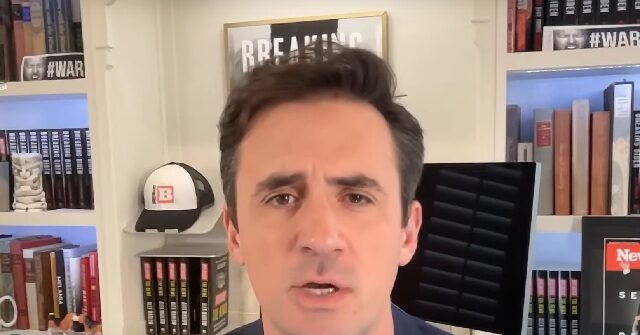On the recent episode of “The Alex Marlow Show,” host and Breitbart Editor-in-Chief Alex Marlow discussed the implications of the settlement between Donald Trump and ABC News for the broader media landscape. The Trump-ABC settlement has raised questions about how media outlets operate and how they may respond to legal challenges arising from their coverage of controversial figures. Marlow’s commentary highlighted the ongoing tension between journalists and those they report on, emphasizing the strategies media professionals might adopt to mitigate the risks of litigation while maintaining their narratives.
Marlow featured a segment of CNN’s Jim Acosta and Brian Stelter, who discussed their perspectives on the Trump-ABC settlement. Acosta and Stelter, both prominent figures at CNN, touched on their personal experiences with changes in their roles at the network—Acosta facing a demotion and Stelter’s termination. Their remarks underscore the precariousness within the media industry, where journalists must navigate not only the substance of their reporting but also the potential legal repercussions that come with high-profile cases involving politicians like Trump.
The discussion continued with Marlow asserting that certain media personalities might prioritize protecting their positions and financial security over journalistic integrity. He noted that such motivations could lead journalists to favor sensationalism or biased reporting rather than pursue unbiased truth. This presents a dilemma, as the perceived need for self-preservation can distort the objectivity essential for credible journalism. Marlow’s insights reflect a broader concern about the media’s role in shaping public perception amid a polarized political climate.
Throughout the episode, Marlow stressed the settlement’s broader implications for media practices, particularly in how news organizations might handle coverage of contentious subjects or individuals. He argued that the ramifications might deter outlets from pursuing thorough investigative journalism for fear of legal ramifications. This trend could result in a less informed public, as media companies could opt for safer stories over those that challenge powerful figures, thereby undermining the foundations of a free press.
Moreover, the episode hinted at a growing schism between traditional media outlets and emerging platforms like Breitbart that prioritize a specific ideological stance. Marlow’s commentary suggested that this divide might lead audiences to choose media based on their pre-existing beliefs rather than objective reporting. As such, the media landscape could become increasingly fragmented, further complicating public discourse and understanding of complex issues.
In conclusion, Marlow’s analysis of the Trump-ABC settlement serves as a cautionary tale for journalists and media organizations. The pressures of self-preservation and fear of litigation could dampen the spirit of journalistic exploration and truth-seeking. As the media continues to grapple with its role in a changing political environment, the foundational principles of integrity, objectivity, and risk-taking will be crucial in maintaining its authority and relevance in society. The episode serves as a call for introspection within the industry as it navigates an increasingly hostile arena.

